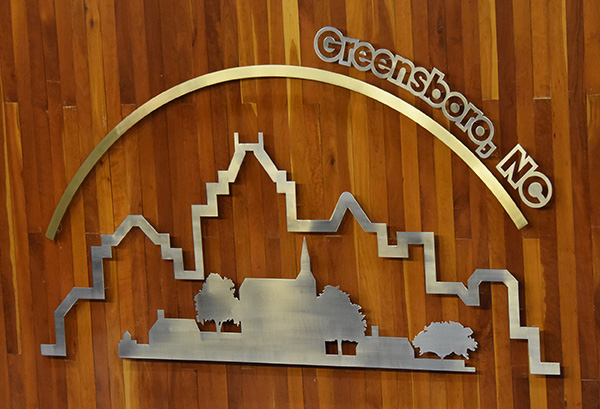The Greensboro City Council is going to start 2021 with a trip on the Wayback Machine.
The City Council at a work session on Tuesday, Jan. 5, 2021 is scheduled to talk about a nightclub security ordinance.
Only those with exceptional memories might recall that the City Council in December 2014 passed a nightclub security ordinance.
This was a classic kneejerk reaction. There had been shooting outside a nightclub downtown that involved four people. The response of the City Council was to pass an ordinance that was so poorly conceived and written that, after passing the ordinance, the City Council passed a moratorium on enforcing the ordinance and then never lifted the moratorium.
It puts the current nightclub security ordinance in the unusual position of being the law in Greensboro but, at the direction of the City Council, an unenforced law.
The ordinance had stringent requirements on how many trained licensed security guards had to be on duty at nightclubs based on the occupancy.
Several smaller nightclub owners said that the additional expense, which they said amounted to thousands of dollars every week, would put them out of business.
Owners of larger nightclubs complained because they couldn’t predict when they were going to have a full house, so in order to be in compliance they would have to hire security guards as if they were going to have a full house, which would be expensive if the crowd didn’t show.
This ordinance is being revived by Mayor Nancy Vaughan at a time when bars can only serve outdoors and nightclubs can’t have indoor crowds of over 25 people.
If the city actually enforced the executive orders from Gov. Roy Cooper, which despite an emergency declaration from Vaughan it is not, then there would be no need for an additional security ordinance because a crowded nightclub is already illegal.
The draft of the ordinance is not yet available, but with bars not allowed to serve any patrons inside and entertainment venues virtually closed, it’s difficult to understand how increased security for closed nightclubs is going to have any effect on the current situation. However, raising the costs for businesses that are already struggling will make it far more difficult for these businesses to climb out of the financial hole that the COVID-19 restrictions have thrown them in when those restrictions are eased.
Councilmember Justin Outling said that such an ordinance should be designed to deal with a specific problem. He said, “What you don’t have here is the actual definition of the problem.”
Outling noted that with the COVID-19 restrictions limiting capacity to 25 and closing bars and nightclubs at 10 p.m., he didn’t see the problem the ordinance was attempting to address.


Just in time for performing arts center debut…….it would be a travesty for city owned and operated venue to be held to the same onerous restrictions as their competition in the private sector.
Metal Detectors and confiscation of firearms should do the trick.
GPD has already confiscated over 1,000 guns this year, I’m certain they’d be happy to have a few more off the street.
This council has a reputation for “much a do about nothing.” Why do they not spend their time on something constructive and if they cannot develop ideas for such, then just do nothing. At least that way they are not showing their stupidity.
Nancy Vaughan is an idiot liberal of Clintonian proportions. There have been more people killed on street corners than in bars and clubs. Does she advocate that the city hire enough police officers to put a cop on every corner? Of course not. Her grasp on the realities of the world is tenuous at best. Is she preparing for a run for Governor in 2024? She needs to be removed before she destroys the remains of a once promising community.